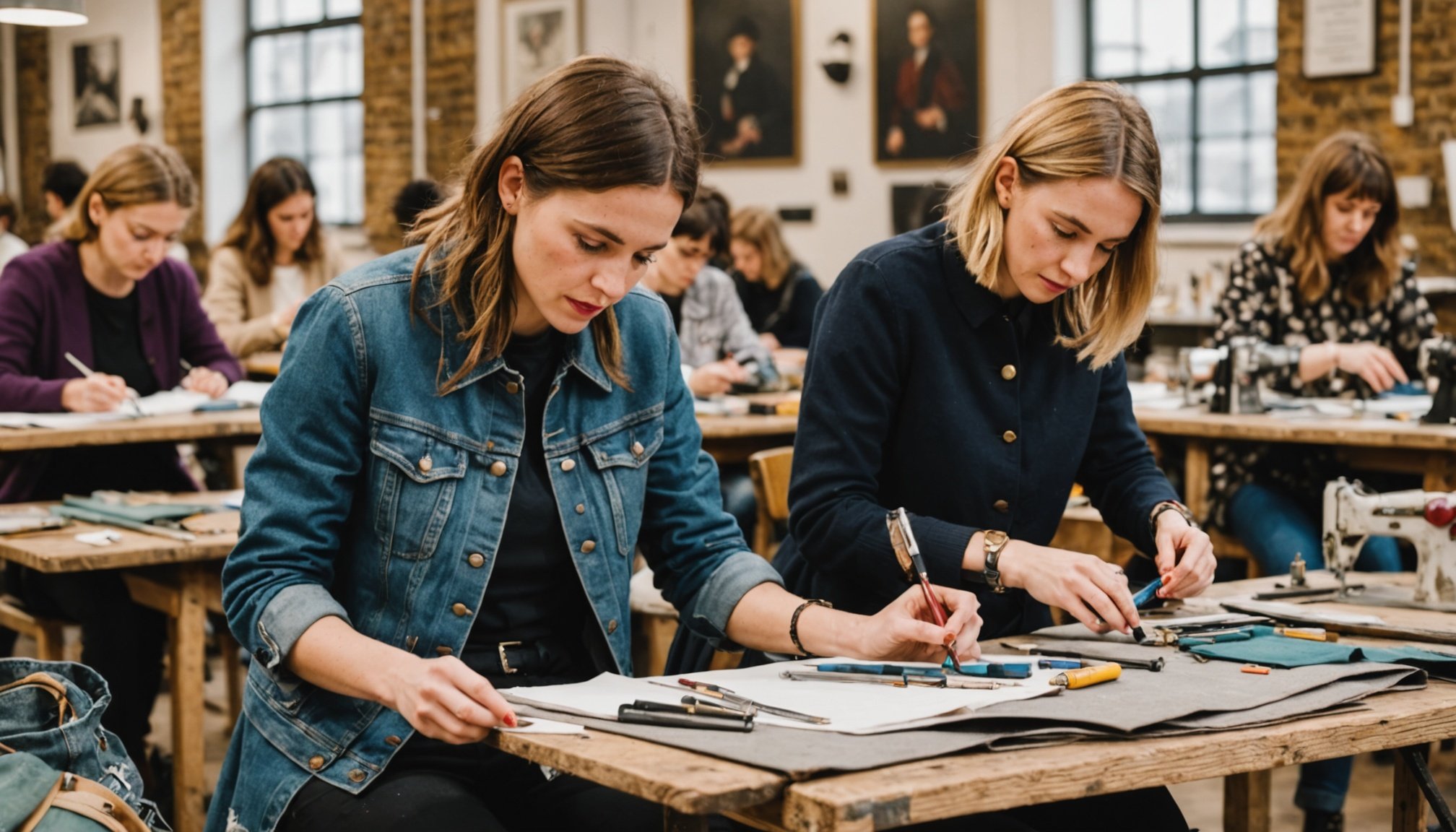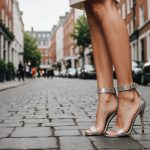Overview of Fashion Upcycling
Fashion upcycling is a central concept within the sustainable fashion movement, marked by its emphasis on eco-friendly practices. By creatively transforming discarded clothing items into new, stylish pieces, fashion upcycling reduces waste and fosters a unique sense of personal style. The process involves repurposing textiles and garments that might otherwise contribute to environmental pollution, thus aligning with the goals of sustainable living.
In addition to its environmental benefits, fashion upcycling presents an exciting opportunity for individuals to express their individuality through distinctive design and customization. This approach not only curtails the fashion industry’s significant waste problem but also encourages a more mindful consumption mindset.
Also to read : Mastering UK Weather: Essential Layering Tips for Unpredictable British Climate
The fashion upcycling movement has been especially vibrant in cities like London, a hub for sustainable fashion enthusiasts. London is dotted with various workshops and classes aimed at teaching the skills necessary for upcycling. These workshops focus on empowering participants to engage with fashion in a more sustainable and creative manner. Individuals across the city participate in these eco-friendly practices, reinforcing a growing community dedicated to rethinking traditional fashion paradigms.
By incorporating fashion upcycling into everyday practice, fashion enthusiasts contribute to a more sustainable future, benefiting both the planet and their wardrobes.
Also read : Uncover London’s Best-Kept Secrets for Exquisite Hand-Dyed Fabrics
Top Fashion Upcycling Workshops in London
Diverse London fashion workshops are dedicated to the art of upcycling, providing hands-on experiences to foster creativity and sustainability.
Workshop One: Create Space, Central London
Create Space is renowned in the heart of London for its immersive sustainable sewing classes. Focused on empowering individuals to redesign their wardrobes, the workshop emphasizes eco-friendly practices. Classes are held every weekend and typically last for two hours, accommodating up to 15 participants per session. Fees start at £50, inclusive of basic materials, ensuring accessibility for beginners venturing into fashion upcycling.
Workshop Two: The Textile Tree, East London
Located in a vibrant area, The Textile Tree workshop distinguishes itself through a unique hands-on teaching style. Regular classes unfold multiple times a week, with optional private sessions available. The pricing varies based on class frequency, starting at £45, plus a nominal fee for specialized materials, making it a versatile option for diverse needs.
Workshop Three: Sew Sustainable, West London
Led by an experienced designer, Sew Sustainable offers a blend of beginner to advanced formats. Participants learn intricate techniques in a supportive setting, focusing on enhancing their skills. Classes are intimate, ensuring personalized guidance. Those attending leave with newfound knowledge and confidence, aligning with the sustainable fashion ethos.
Additional Resources for Fashion Upcycling
The journey of fashion upcycling extends beyond workshops. Many upcycling resources can enrich your knowledge and enthusiasm for creating sustainable fashion.
Recommended Books and Online Resources
Books and digital guides offer invaluable insights. Titles like “Fashionable Selby” and websites such as Upcyclist explore creative ways to reinvent clothing. These resources provide eco-friendly materials ideas and step-by-step instructions for novices.
Community Groups and Forums
Engage with community groups such as The Upcycle Club on platforms like Facebook. Here, enthusiasts share tips and showcase their projects. These forums are pivotal for staying updated on sustainable fashion trends and sourcing upcycling resources collaboratively.
Sourcing Materials Sustainably
For the environmentally-conscious, acquiring eco-friendly materials is essential. Swish and Style events in London offer opportunities to swap and buy sustainable textiles. Additionally, local charity shops and second-hand markets are goldmines for materials. By prioritizing sustainable sources, you bolster the positive impact of your sustainable fashion endeavors.
These resources collectively support individuals eager to delve deeper into upcycling, offering both instructional content and community engagement opportunities.
Participant Reviews and Experiences
Fashion upcycling workshops in London offer a wealth of opportunities for learning and growth, and participant testimonials reflect these enriching experiences.
Positive Feedback Themes
Feedback from participants consistently praises the workshop environment and the warm, inclusive community it fosters. Many learners appreciate the chance to network with like-minded individuals passionate about sustainable fashion. These workshops not only provide upcycling experiences that enhance personal skills but also inspire a shift toward environmentally-conscious fashion choices. Participants frequently highlight newfound creativity and confidence in implementing eco-friendly practices within their wardrobes, thanks to engaging, informative sessions.
Constructive Critiques
While feedback is predominantly positive, some critiques are directed at the alignment of workshop content with attendees’ expectations. Certain participants find a mismatch between their actual skill levels and the assumed proficiency required, suggesting a desire for clearer guidance on class difficulty. Additionally, constructive critiques often touch upon the value of diverse teaching methods. Attendees suggest diversifying content delivery to cater to different learning styles. By addressing these insights, workshops can further refine their offerings, ensuring participants receive the most value from their educational experiences.
Finding the Right Workshop for You
Selecting the ideal upcycling workshop can transform your personal skill development and expand your engagement with sustainable fashion. When choosing workshops, consider the following factors:
- Location: Opt for workshops near your residence or accessible by public transport to ensure regular attendance.
- Expertise: Research the instructor’s background to ensure alignment with your learning goals, whether you’re a beginner or looking for advanced techniques.
- Skill Level: Choose workshops that match your current proficiency to avoid feeling overwhelmed or under-challenged.
Maximizing your experience begins with open communication; don’t hesitate to discuss your goals with instructors to tailor the learning process. Engage actively during sessions, participate in group discussions, and practice skills consistently at home to accelerate your learning curve.
Post-workshop, seek opportunities for continuous practice through community groups or online forums. This ensures sustained growth and networking with fellow enthusiasts. Additionally, attending creative workshops regularly fosters a long-term commitment to eco-friendly practices, further enhancing your contribution to sustainable fashion. By diligently selecting workshops and creating a path for continuous engagement, you not only hone your skills but also become an integral part of the fashion upcycling community.







